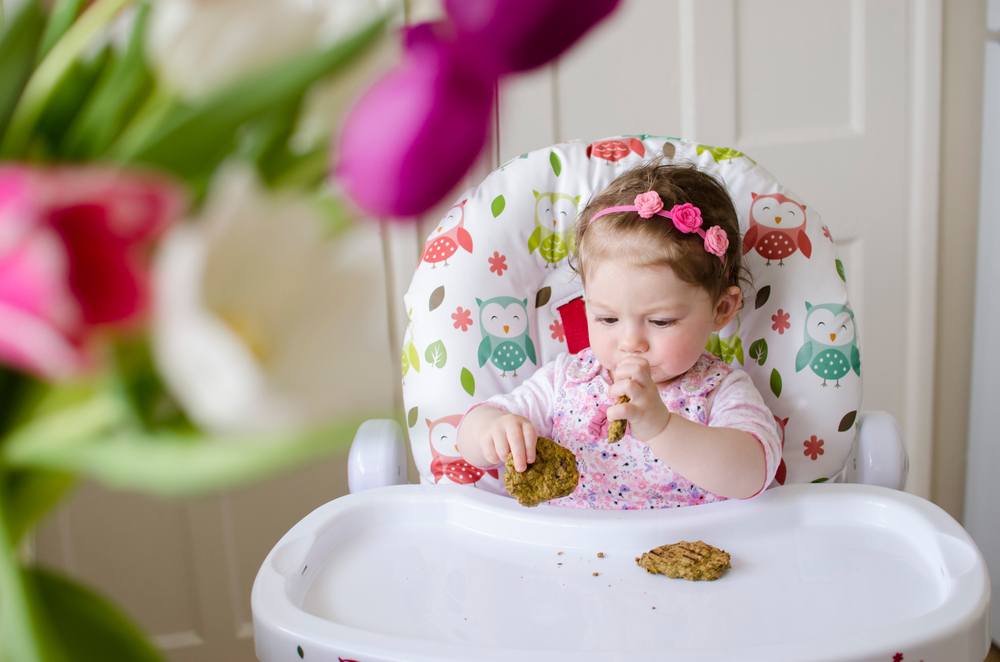
The days are long, and the years… boy, they sure are short. The milestones zoom by as new parents try to soak up all the precious moments — and that includes baby’s first foods. As with many aspects of raising littles, parents have choices when it comes to feeding their infant. Baby-led weaning — a method that encourages parents to skip “baby food” — has gained momentum in recent years.
Danielle Gill Rocque, CCC-SLP, a certified speech-language pathologist with Wolfson Children’s Rehabilitation, shares what baby-led weaning entails, the benefits of the approach, and the safety considerations parents should bear in mind.
What is baby-led weaning?
Weaning — getting your infant accustomed to food other than milk or formula — generally begins around 6 months of age, when the baby is introduced to solids after being exclusively breastfed or bottle-fed.
“Baby-led weaning skips purees and spoon-feeding by parents,” Rocque explains. “This approach allows the baby to explore foods independently and to consume the amount of food he or she is comfortable with. For example, parents would start with soft, stick-shaped foods, such as avocado strips, for their baby to hold and self-feed versus starting with a puree ‘stage one’ baby food.”
In addition to promoting positive eating behaviors and giving children the opportunity to explore food independently, Rocque added that baby-led weaning can foster those much-needed fine motor skills.
“With this approach, babies are in charge of picking up the food and feeding themselves from the very beginning,” says Rocque. “Around 9 months, parents can offer a dip, like hummus, yogurt or oatmeal, with the soft, stick-shaped foods. This allows the baby to eat soft, runny foods without the need for a spoon, and it’s also a good way for him or her to acquire the skills needed for using a spoon later.”
How safe is it?
Some parents may hesitate to let their 6-month-old feed themselves. One of the most common questions: Will he or she choke if they try to eat something that’s not finely blended? Before trying anything new when it comes to your baby, it’s crucial to understand the safety measures.
“It’s important to ensure your baby is developmentally ready. He or she should be at least 6 months old and be able to sit up unsupported with control of his or her head before starting solid foods,” Rocque shares. “Food choices are also extremely important. Parents should stick to foods that are soft and easy to mash once it enters baby’s mouth. Remember, your baby doesn’t know how to chew yet. Avoid foods that are hard or overly sticky.”
The speech-language pathologist adds that baby-led weaning can be an excellent option for little ones who are meeting developmental milestones. For children who are delayed, a modified approach to baby-led weaning can be applied.
“If your baby is having difficulty transitioning through the textures, isn’t chewing, or is delayed in reaching developmental milestones, parents should talk to their pediatrician to see whether the support of a speech-language pathologist who specializes in feeding could be beneficial,” she says.
The best part? It can be fun!
If caregivers select appropriate foods and take certain safety precautions, baby-led weaning can be a wonderful way to introduce baby to a variety of healthy foods. Plus, it’s fun for little ones who want to explore and touch everything — and put it all right in their mouths!
“Babies want to explore food because that’s how they learn! Spoon-feeding isn’t typically as fun for them because they’re not in control of how much or how fast they eat,” says Rocque. “It’s important to remember that with this approach, it’s up to your little one to decide how much they eat and how quickly the range of food they enjoy widens. Lastly, keep in mind that baby-led weaning involves a lot of food missing the mouth. Things will get messy, and that’s okay.”
Speech-language pathologists at Wolfson Children’s Rehabilitation specialize in caring for infants and children who need help effectively communicating, eating, or swallowing. To learn more about Wolfson Children’s Rehab, call 904.202.4200.
















